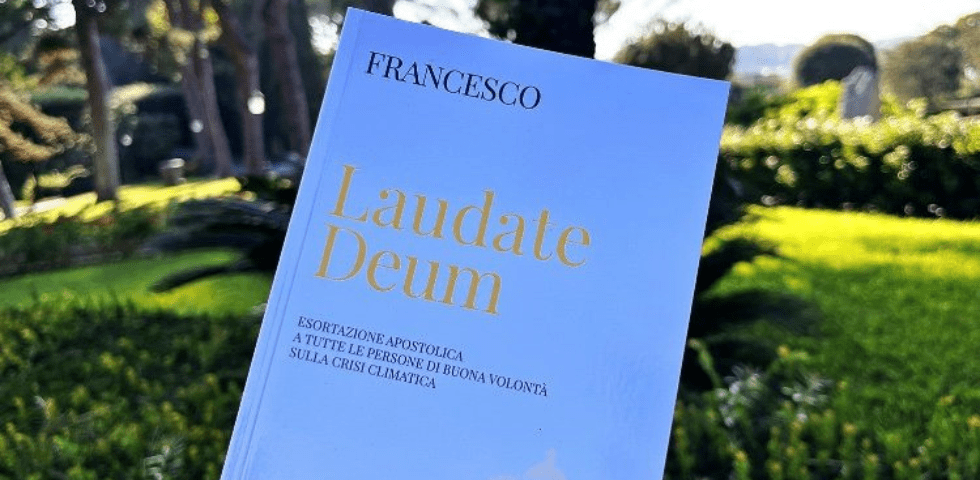One image that can help us interpret Pope Francis’ Apostolic Exhortation Laudate Deum is that of “a wakeup call.”
The Pope warns that eight years have passed since his encyclical letter Laudato si’, and “we do not have sufficient reactions while the world that welcomes us is crumbling and perhaps approaching breaking point” (n. 2).
The great concern of Pope Francis is the consequences of climate change or climate crisis, subtitle of the new document, whose main cause is human intervention in nature (cf. n. 14).
a) “A wakeup call” from the poor and vulnerable
Pope Francis’ “A wakeup call” is from the place of those who are most intensely affected by the effects of climate change, that is, the poor and vulnerable. Being more precise and offering a geographical location, Africa is presented as the continent that is home to more than half of the poorest on the planet and is responsible for a minimal part of historical emissions. Therefore, it is not the poor who are to blame for the current climate crisis (cf. n. 9).
b) For whom it is “a wakeup call”
The Pope recognizes the existence of real powers, especially economic powers, which are the representatives of the technocratic paradigm, whose advance he himself confirms and which, he argues, “feeds monstrously on itself” (n. 21).These power groups are characterized by a lack of ethics, culture and spirituality.
In paragraphs 32 and 60 the Pope throws two questions to the powerful. The first one reads “what do they care about the damage to the Common Home if they feel safe under the supposed armour of the economic resources they have obtained with their capacity and with their effort?” In a second question: “Why do you want to preserve today a power that will be remembered for its inability to intervene when it was urgent and necessary to do so?”
In addition, “a wakeup call” is for national and international politics that has proved inoperative when it comes to making bold decisions. Existing global organizations must be more effective and endowed with real authority. Indeed, both diplomacy and politics have not achieved a new multilateralism and this needs to be reconfigured from the new world situation that passes above all through the renewal of procedures in decision making and legitimization of them.
In this regard, in paragraph 43, Pope Francis affirms: “It will no longer serve us to sustain institutions to preserve the rights of the strongest without taking care of those of all.” The knock on the table is also for the Climate Conferences (COP) that opened in Rio de Janeiro in 1992.
The Argentine Pope denounces that “the agreements have had a low level of implementation because adequate mechanisms of control, periodic review and sanction of non-compliance were not established” (n. 52). Therefore, the next COP28 in Dubai is expected to “binding forms of energy transition that have three characteristics: that they are efficient, that they are mandatory and that they can be monitored” (n. 59).

c) “A wakeup call” to awaken the Catholic faithful
The Pope acknowledges that even within the Catholic Church there is resistance to his reading of the climate crisis. “I am compelled to make these clarifications, which may seem obvious, because of certain derogatory and unreasonable opinions that I find even within the Catholic Church” (n. 14). It reminds them of the motivations of their own faith, since it “not only gives strength to the human heart, but transforms the whole of life, transfigures one’s own goals, illuminates the relationship with others and the bonds with all creation” (n. 61).
In conclusion, in this Apostolic Exhortation we find a more prophetic Pope Francis. Therefore, Laudate Deum is a strong wake-up call from the Pope in order to move global decision-making to counteract the effects of climate change. We are still in time, but there is not much left.

